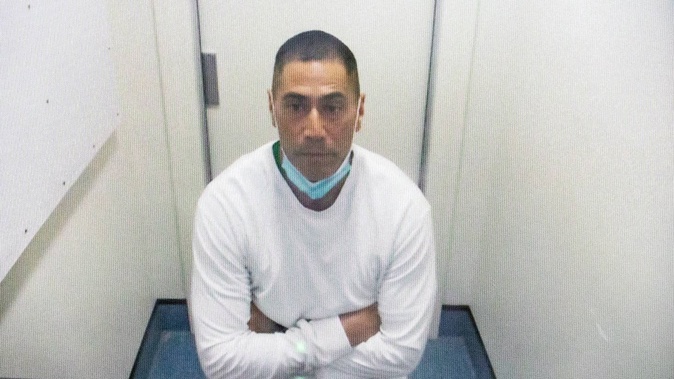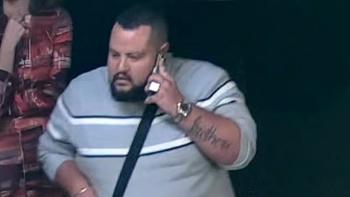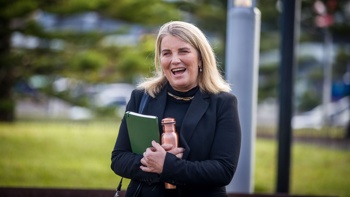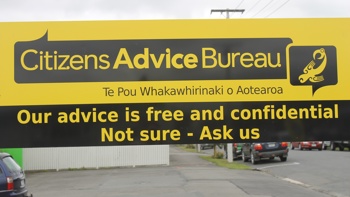
The Rebels gang boss said to have “fried the town” where he lived made at least $1.15 million distributing drugs across the North Island, according to forensic analysis of his financial affairs.
James Patrick Duff, 52, was the president of the Midlands Chapter of the outlaw motorcycle club and the main target of a covert police investigation, Operation Ulysses, in 2019.
/cloudfront-ap-southeast-2.images.arcpublishing.com/nzme/SMBQYZXM5BHF3AJ6H75ZC3NCTY.jpg)
One of the repossessed items was a 2012 Harley Davidson Night Rod motorcycle. Photo / NZ Police / Supplied
Bugged conversations and surveillance unmasked Duff as the “working CEO” of a drug syndicate in which lower-ranking Rebels and other drug dealers sold methamphetamine - as well as LSD, cannabis and ecstasy - on his behalf.
He admitted 31 charges of various drug dealing offences, possession of a pistol, participating in an organised crime group and attempting to pervert the course of justice, then was sentenced to 14 years and 2 months in prison.
At the sentencing hearing in March last year, Duff’s lawyer Scott McColgan said his client’s offending was not driven by greed but “envy and anger”.
He grew up poor, was sick of struggling and just wanted to live a better life - one that was better than what he had as a child.
/cloudfront-ap-southeast-2.images.arcpublishing.com/nzme/UYBRR4AUKPGRLB34TUJCMW74CY.jpg)
Rebels gang boss James Duff was under covert surveillance during Operation Ulysses in 2019 which uncovered his widespread drug dealing. Photo / Supplied
Duff was one of nine children born to a mother who had her first child at 15. He moved around a lot and experienced hardship and poverty. His criminal offending began aged 7 stealing food to feed his siblings. He was put in a borstal at the age of 11.
McColgan said Duff said he wanted to prove to his family he “wasn’t an effing loser ... I wanted to prove I was a winner”.
But in a fresh legal blow, Duff has now forfeited a significant portfolio of assets that he could only afford because of his illegal - but lucrative - enterprises.
Despite being mostly unemployed for decades, Duff was able to accumulate a 6-hectare lifestyle block, a rental property, several vehicles including a vintage Chevrolet, four Harley-Davidson motorcycles, and $180,000 held in bank accounts.
The $1.2m worth of assets were restrained under the Criminal Proceeds Recovery Act, a law under which the police do not need a conviction.
/cloudfront-ap-southeast-2.images.arcpublishing.com/nzme/RKM234KBWZAOXJFMFUEKYF5WJQ.jpg)
A Continental Chevrolet Impala has been claimed by police. Photo / NZ Police / Supplied
They only have to show that someone profited from criminal offending to the lower standard of proof applied in civil cases — “on the balance of probabilities” — rather than surpassing the more difficult “beyond reasonable doubt” threshold for criminal cases.
While Duff was convicted of prolific drug offending during the six months that Operation Ulysses ran for in 2019, a parallel investigation by the Waikato Asset Recovery Unit was able to show unexplained wealth dating back six years.
Between June 2013 and October 2019, Duff received a financial benefit of at least $1,115,715.85 from his crimes, according to forensic analysis of his bank accounts and cash spending.
This figure was not disputed and in Duff’s own words, he’d been dealing drugs for even longer.
“I’ve been doing this for f***ing eighteen years my bro … that’s how long … I’ve seen everything,” Duff told a criminal associate in a conversation bugged by police.
/cloudfront-ap-southeast-2.images.arcpublishing.com/nzme/CNFFL4Q7JZE53LF5BDXQACYCRM.jpg)
James Duff's 6-hectare lifestyle block has been forfeited to the Crown after his convictions for widespread drug dealing. Photo / Supplied
Duff recently agreed to forfeit the frozen assets to the Crown rather than contest the restraining orders in a High Court hearing.
Detective Senior Sergeant Keith Kay, of the Waikato ARU, said the seized assets were valued at around $1.2m.
Once sold, the money would be put into the Proceeds of Crime Fund from which agencies can make an application to fund crime prevention as well as drug and alcohol rehabilitation initiatives.
Kay said the Criminal Proceeds Recovery Act was passed so the police could hold people to account so they do not benefit from proceeds of crime.
“In this case the significant supply of drugs to our communities, often causing irreparable harm to individuals and their families,” Kay said.
“Organised crime is all about money and police are focused on targeting the proceeds of that crime. This proceeding is an excellent result and in particular for the Bay of Plenty communities.”
The forfeited lifestyle block was also where Duff would discuss business with his fellow Rebel gang members.
They would gather in the double garage for the meetings, referred to as “church” in gang circles, and talk about issues facing the club or individual members.
Each patched member would sell drugs on behalf of Duff, either directly themselves or through their own distribution channels.
In a three-month period, police estimate Duff supplied at least 3kg of meth, 130 tabs of LSD, multiple ounces of MDMA and about 20 pounds of cannabis.
/cloudfront-ap-southeast-2.images.arcpublishing.com/nzme/M4Z3MQZOWNFR5JKKNALNGSXUBE.jpg)
A Yamaha Waverunner Supercharged jet ski and trailer has been repossessed by Police. Photo / NZ Police / Supplied
In one conversation bugged by police, they talked about how Duff had “fried the town” where he lived. The town can’t be identified because of related suppression orders for a co-offender.
Aside from the group meetings, Duff would hold one-on-ones with gang members and supply them with bulk amounts of drugs on credit, expecting to be repaid in days or weeks.
The Rebels president, often referred to as “Captain” or “Number One”, was not to be crossed.
/cloudfront-ap-southeast-2.images.arcpublishing.com/nzme/4XYFKMQPO2OEJYW3IBFDAI6EFQ.jpg)
Money found during Operation Ulysses. Photo / Supplied
During the investigation, Duff and his vice-president supplied 1kg of methamphetamine, valued at about $125,000, to a customer.
But the man never showed up to pay his debt and the agreed share of the profit.
Duff became enraged and placed a $10,000 bounty on the man’s head for anyone who could find him.
The confiscation of Duff’s ill-gotten gains comes shortly after the Labour government strengthened the already powerful criminal proceeds law which the police have used to restrain more than $1 billion worth of assets from suspected criminals since 2009.
Under the recent change to the law, the police will be able to ask the High Court to restrain - and later forfeit - the assets of anyone “associated” with an organised criminal group, if their declared income was insufficient to pay for them.
This is designed to target the leaders of gangs, and organised criminal groups, who the police allege have structured their affairs to “insulate” themselves from involvement, or even knowledge of, profit-driven crimes committed by their members.
Jared Savage is an award-winning journalist who covers crime and justice issues, with a particular interest in organised crime. He joined the Herald in 2006, and is the author of Gangland.
Take your Radio, Podcasts and Music with you









